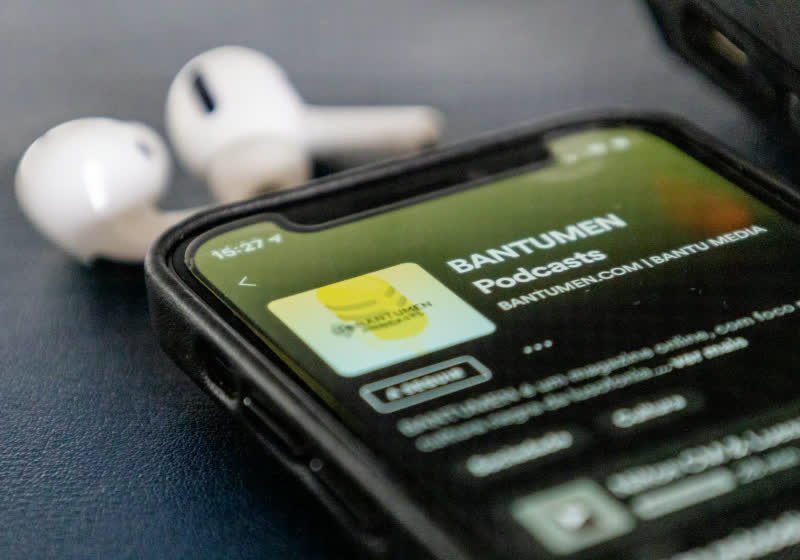
Spotify has announced that it is "updating" the price of its service over the next month for subscribers in the US, Estonia, and Latvia.
Read Entire Article

I can think of a few. I am not thinking of ongoing struggles, such as the funding of opposition to the Sandinistas, rather I wish to focus on cases where the key leaders actually were removed. After all, we know that is the case in Venezuela today. Maybe these efforts were rights violations, or unconstitutional, and yes that matters. But how did they fare in utilitarian terms?
Puerto Rico: 1898, a big success.
Mexican-American War: Removed Mexican leaders from what today is the American Southwest. Big utilitarian success, including for the many Mexicans who live there now.
Chile, and the coup against Allende: A utilitarian success, Chile is one of the wealthiest places in Latin America and a stable democracy today.
Grenada: Under Reagan, better than Marxism, not a huge success, but certainly an improvement.
Panama, under the first Bush, or for that matter much earlier to get the Canal built: Both times a big success.
Haiti, under Clinton, and also 1915-1934: Unclear what the counterfactuals should be, still this case has to be considered a terrible failure.
Cuba, 1906-1909: Unclear? Nor do I know enough to assess the counterfactual.
Dominican Republic, 1961-1954, starting with Trujillo. A success, as today the DR is one of the wealthiest countries in Latin America. But the positive developments took a long time.
I do not know enough about the U.S. occupation of the DR 1916-1924 to judge that instance. But not an obvious success?
Can we count the American Revolution itself? The Civil War? Both I would say were successes.
We played partial but perhaps non-decisive roles in regime changes in Ecuador 1963 and Brazil 1964, in any case I consider those results to be unclear. Maybe Nicaragua 1909-1933 counts here as well.
So the utilitarian in you, at least, should be happy about Venezuela, whether or not you should be happy on net.
You should note two things. First, the Latin interventions on the whole have gone much better than the Middle East interventions. Perhaps that is because the region has stronger ties to democracy, and also is closer to the United States, both geographically and culturally. Second, looking only at the successes, often they took a long time and/or were not exactly the exact kinds of successes the intervenors may have sought.
Absher, Grier, and Grier consider CIA activism in Latin America and find poor results. I think much of that is springing from cases where we failed to remove the actual leaders, such as Nicaragua and Cuba. Simply funding a conflict does seem to yield poor returns.
The post U.S. interventions in the New World, with leader removal appeared first on Marginal REVOLUTION.

Comment The tendency of Linux developers to reinvent wheels is no secret. It's not so much the elephant in the room, as the entire jet-propelled guided ark ship full of every known and unknown member of the Proboscidea from Ambelodon to Stegodon via deinotheres, elephants, mammoths and other mastodons.…

Legislation requiring cars and trucks, including electric vehicles, to have AM radios easily cleared a House committee Wednesday, although it could run into opposition going forward.
H.R. 979, the “AM Radio for Every Vehicle Act,” would require the Department of Transportation to enforce the mandate through a rulemaking. It passed the Energy and Commerce Committee by a 50-1 vote. Rep. Jay Obernolte (R-Calif.) was the only “no.”
What’s next—mandating 8-track players in every car? Fax machines in every home? Floppy disks in every laptop? If Congress actually cared about emergency communication, it would strengthen cellular networks, not cling to obsolete technology. Congress is a den of old busybodies.
Hat tip: Nick Gillespie.
Addendum: If AM radio is so valuable for emergencies then the market will provide or you could, you know, put an AM radio in your glove box. No need for a mandate. We already have FM, broadcast TV, cable, satellite, cell, and Wireless Emergency Alerts; resilience can be met without specifying AM hardware.
The post Creative Stagnation appeared first on Marginal REVOLUTION.
Before the potential of the internet was appreciated around the world, nations that understood its importance managed to scoop outsized allocations of IPv4 addresses, actions that today mean many users in the rest of the world are more likely to find their connections throttled or blocked.…